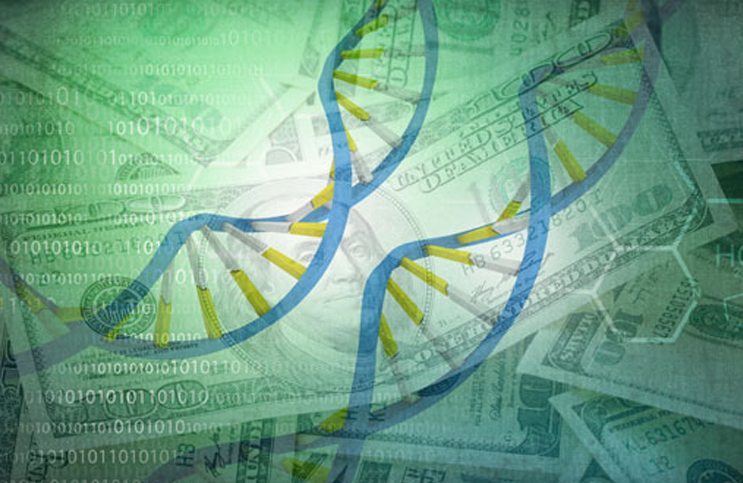
We’ve seen a couple of big announcements out of the biotech space this week, specifically relating to high profile collaborations. As always with these collaboration reports, the smaller company gets a boost in its market cap, and this week things are no different. Here’s are two of the weeks biggest movers, and a look at the deals that drove their revaluation – Agios Pharmaceuticals Inc (NASDAQ:AGIO) and Anacor Pharmaceuticals Inc (NASDAQ:ANAC).
First then. Agios.
Back in 2010, Agios signed an agreement with Celgene Corporation (NASDAQ:CELG) that saw the tow companies join forces to conduct a discovery program in immuno-oncology. Yesterday, Agios announced an extension of this collaboration, that will see the latter pick up $200 million in upfront cash, and conduct exploratory research and discovery in the space. Celgene is funding the development (by way of the $200 million cash payment) and has the option to pick up any candidate that proves promising and worthy of advancing into clinical studies. This latter option will cost Celgene a further $30 million if exercised.
So what impact did this have on Agios? The company closed out last week for a little over $46 a share. At market open this morning, Agios could be had for $54, a more than 17% gain across what is essentially one session.
Why such gains? The rise comes on the back of the implications of the deal. Essentially, when the two first hooked up in the immuno-oncology space, it was a moon shot. The space was still very young, and there wasn’t a whole lot of clinical data to support the concept, never mind actual drug data. Things have changed a lot in the past half decade, however, and immuno-oncology has grown to become one of the most promising subsectors of biotech. That these two companies are reinforcing their collaboration suggests they have something they deem promising, and that its benefit outweighs the $200 million Celgene is fronting to gain access to Agios’ technology.
It’s early days, but the timing is right for a fresh immuno-oncology candidate, and both Agios and Celgene could pick up strength as the second quarter matures on this announcement.
Next up, Anacor.
This one’s a buyout. It’s an interesting time in biotech. What is happening to Valeant Pharmaceuticals Intl Inc (NYSE:VRX) is weighing heavily on the sector, and a number of companies that are otherwise solid fundamentally are taking a bit of a beating in the open market. This, of course, offers companies with a bit of cash on hand the opportunity to pick up smaller entities at a discount. This looks to be one such example. Biotech giant Pfizer Inc. (NYSE:PFE) just announced it was buying Anacor, in a deal worth $5.2 billion. The deal amounts to Pfizer paying $99.25 a share for the the company, which represents a more than 55% premium on the latter’s open market close at the end of last week.
So why would Pfizer buy Anacor? Anacor’s lead candidate, Crisaborole, is a late stage development asset currently under investigation for the treatment of psoriasis and dermatitis. The treatment is a non-steroidal topical, which is something market shave been looking for for a long time, based on an attempt to reduce the adverse events associated with chronic topical application of steroidal compounds. It’s what’s called a PDE4 inhibitor. We won’t go into too much detail surrounding the MOA of these types of inhibitors, but to simplify, they inhibit an enzyme called PDE (in this instance, the fourth iterance of the enzyme), which is responsible for the hydrolyzing of what’s called cAMP. cAMP plays a role in signal transduction (which is the process used to communicate instructions to a cell for processes like replication, proliferation etc.). By stopping this hydrolization, the cells don’t get the external signals, and don’t replicate.
The hope is that this can be used to treat a host of immune system related dermatological conditions – and Pfizer obviously believes it will. The drug’s PDUFA comes is not until January next year, so Pfizer probably intends to kick off some expansion trials between now and then in an attempt to boost the data that supports the NDA.
Whatever happens, a good week for Anacor holders – essentially, the gains that could have been expected on approval in January, but that have come more than six month’s earlier on Pfizer’s backing rather than that of the FDA.




